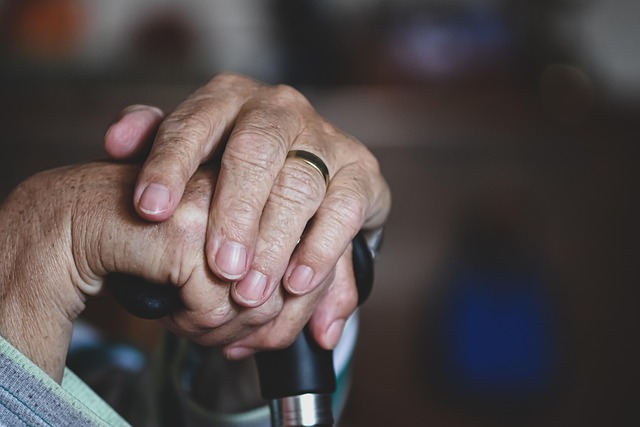Essential Skills and Knowledge for Non-Medical Elderly Companion Training
As the need for emotional connection and daily support among seniors rises, many individuals are turning to non-medical elderly companion roles as a path toward meaningful engagement. This guide outlines key concepts and practices people often explore when considering training for such roles, including communication strategies, safety awareness, and ways to enhance well-being. Understanding how this training is typically structured can offer valuable insight for those interested in the evolving field of companionship support.

Core Communication Techniques for Senior Care
Effective communication forms the foundation of successful elderly companionship. Elderly communication techniques go beyond basic conversation skills and require specialized approaches. Seniors may experience hearing loss, cognitive changes, or processing delays that necessitate adaptive communication methods. Training typically covers speaking clearly at an appropriate volume, maintaining eye contact, using simple language without being condescending, and employing active listening skills. Companions learn to recognize non-verbal cues, practice patience, and adjust communication styles based on individual needs. Additionally, training often addresses communication strategies for those with dementia or Alzheimer’s disease, including validation therapy and reminiscence techniques that honor the senior’s reality rather than correcting misperceptions.
Essential Non-Medical Home Care Skills
Non-medical home care skills encompass a wide range of practical abilities that enable companions to support seniors’ daily living activities. Training typically covers assistance with mobility, including proper body mechanics for helping seniors stand, sit, and navigate their environment safely. Companions learn techniques for meal preparation that accommodate dietary restrictions and nutritional needs common among seniors. Light housekeeping, medication reminders (without administering medications), and transportation assistance are also covered. Additionally, training addresses organizational skills for managing schedules, appointments, and household management. Technology training has become increasingly important, as companions often help seniors stay connected with family through video calls or assist with online grocery ordering and other digital tasks that promote independence.
Obtaining Companion Caregiver Certification
While not always legally required, companion caregiver certification provides validation of skills and knowledge that employers and families value. Certification programs typically cover ethics, professional boundaries, client rights, and industry best practices. Programs vary in depth and focus, with some offering specialized certifications in areas like dementia care or end-of-life support. Most certification programs combine classroom or online learning with hands-on practice sessions. National organizations that offer respected credentials include the National Association for Home Care and Hospice (NAHC) and the Home Care Association of America (HCAA). Additionally, many community colleges and vocational schools offer certificate programs specific to non-medical caregiving that can range from 40 to 100+ hours of instruction.
Comprehensive Senior Care Training Programs
Senior care training programs typically include both theoretical knowledge and practical skills development. Core curriculum areas include understanding the aging process and common health conditions affecting seniors, recognizing emergency situations, and implementing fall prevention strategies. Training also covers the psychological and emotional aspects of aging, including grief support and addressing isolation. Cultural competency training helps companions respect and honor diverse backgrounds, traditions, and preferences. Many programs incorporate role-playing scenarios that simulate challenging situations, from reluctance to bathe to handling family dynamics. Reputable training programs also address caregiver self-care strategies to prevent burnout and compassion fatigue, which are common in caregiving roles.
Safety and Emergency Preparedness Skills
Safety training forms a critical component of companion preparation, focusing on both preventing emergencies and responding appropriately when they occur. Companions learn to identify and address home safety hazards, implement fall prevention strategies, and recognize signs of elder abuse or neglect. Basic first aid and CPR certification are often required or strongly recommended. Training typically covers proper responses to common emergencies like falls, sudden illness, or household accidents. Additionally, companions learn to maintain emergency contact information, understand when to call emergency services versus the client’s healthcare provider, and how to communicate effectively with medical professionals during emergencies.
Training Program Cost Comparison and Certification Options
When exploring senior care training, understanding the investment required helps with career planning. Training program costs vary significantly based on depth, duration, and whether certification is included.
| Training Provider | Program Type | Duration | Cost Estimate | Certification Included |
|---|---|---|---|---|
| Red Cross | Caregiver Training | 4-6 weeks | $300-$500 | Basic caregiving certificate |
| CareAcademy | Online Companion Care | Self-paced | $120-$250 | Digital certification |
| National Association for Home Care | Comprehensive Companion Training | 8 weeks | $800-$1,200 | Nationally recognized certification |
| Community Colleges | Elderly Care Certificate | 1 semester | $600-$1,500 | College certificate |
| Home Care Association of America | Advanced Companion Care | 10-12 weeks | $750-$900 | Industry certification |
Prices, rates, or cost estimates mentioned in this article are based on the latest available information but may change over time. Independent research is advised before making financial decisions.
Specialized Knowledge for Enhanced Companion Care
Beyond basic skills, specialized knowledge enhances the value and effectiveness of elderly companions. Understanding common chronic conditions like diabetes, arthritis, and heart disease helps companions provide appropriate support without crossing into medical care. Knowledge of nutrition and hydration needs specific to seniors enables companions to encourage healthy eating habits. Training in cognitive stimulation activities, from memory games to music therapy, helps companions engage seniors mentally. Understanding the psychological aspects of aging, including grief, loss of independence, and changing family dynamics, prepares companions to provide emotional support. Additionally, many training programs now include cultural competency components that help companions respect diverse traditions, preferences, and communication styles when working with seniors from varied backgrounds.
The field of non-medical elderly companionship offers rewarding career opportunities for compassionate individuals. Through comprehensive training in communication, practical skills, safety procedures, and specialized knowledge, companions can make meaningful differences in seniors’ lives while building sustainable careers in the growing field of senior care.
This article is for informational purposes only and should not be considered medical advice. Please consult a qualified healthcare professional for personalized guidance and treatment.




